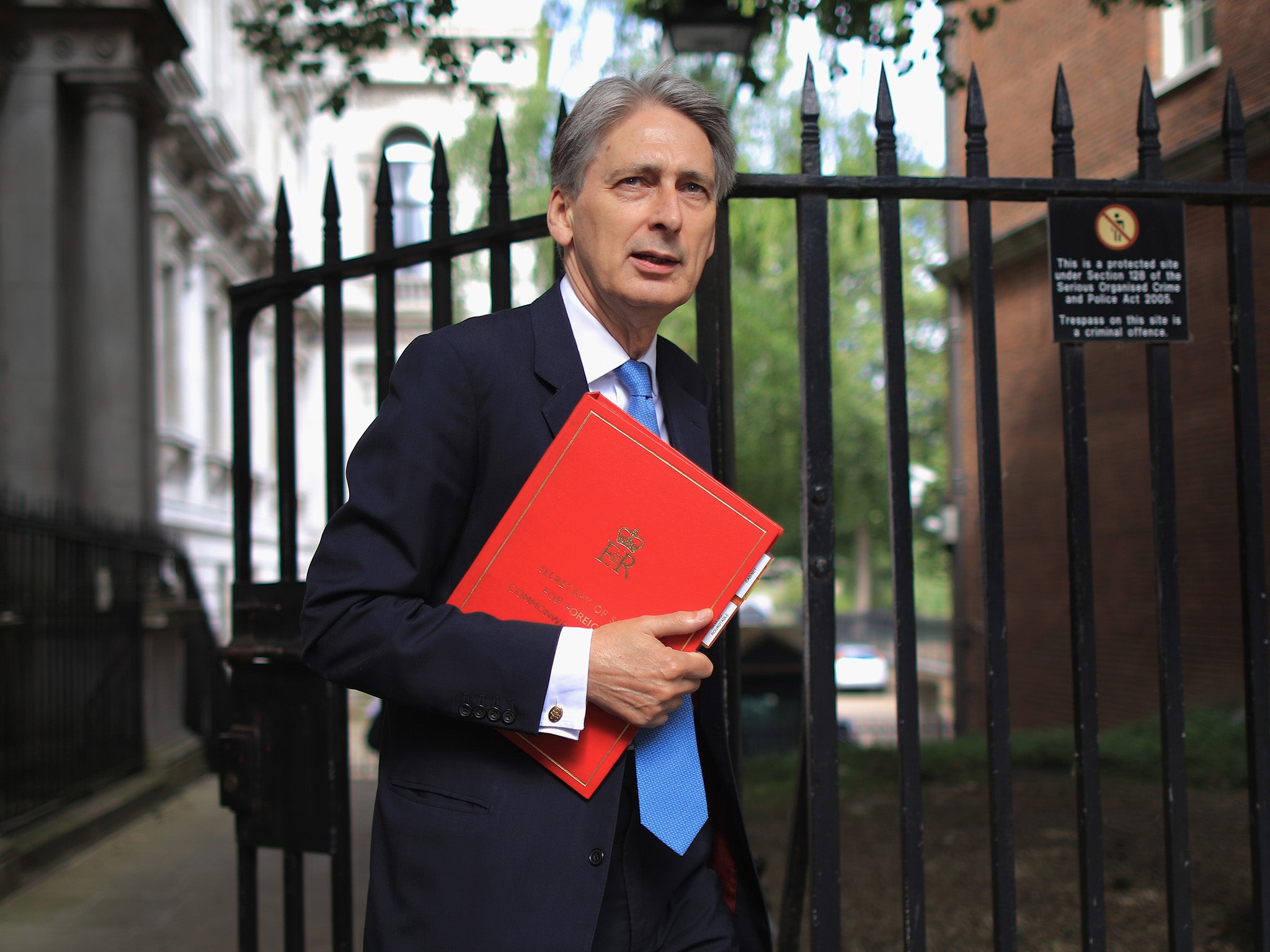Philip Hammond’s plans to bring the Budget forward could actually be good for the economy
Whatever view you take of Brexit, the practical point for the budget is that the government needs to have funds in hand to cope with every possible outcome

Your support helps us to tell the story
From reproductive rights to climate change to Big Tech, The Independent is on the ground when the story is developing. Whether it's investigating the financials of Elon Musk's pro-Trump PAC or producing our latest documentary, 'The A Word', which shines a light on the American women fighting for reproductive rights, we know how important it is to parse out the facts from the messaging.
At such a critical moment in US history, we need reporters on the ground. Your donation allows us to keep sending journalists to speak to both sides of the story.
The Independent is trusted by Americans across the entire political spectrum. And unlike many other quality news outlets, we choose not to lock Americans out of our reporting and analysis with paywalls. We believe quality journalism should be available to everyone, paid for by those who can afford it.
Your support makes all the difference.The chancellor wants to bring forward the Budget, scheduled for late November, to some time next month. The reason, apparently, is that he wants to get the Finance Bill, which puts into law the provisions of the Budget, through parliament before the contentious Brexit legislation on whatever deal is struck with Europe goes before the House around the end of November.
Given the way parliament works, this makes practical sense: it would allow parliament to get one job out of the way before it tackles another. The whole idea of moving the Budget forward from the spring to the autumn of the previous year was to give more time for consideration of its measures. Were it not for the subtext about the weakness of the prime minister, the plotting of the various ministers against each other, and the acrimony over Brexit, moving it a few weeks further from November to October should be no big deal.
That the move should be seen as an effort to stop the Brexiteers from bringing the prime minister down says more about our febrile politics than it does about the state of the economy, or of public finances.
As it happens, the background to this Budget is more favourable than appeared likely in the spring. In the first four months of the fiscal year, the budget deficit was the lowest since 2002, with a significant surplus in the month of July. There may be special reasons for this outturn, so one should be cautious about projecting this improvement through to the whole year.
Nevertheless, the strong tax revenues suggest that the economy has continued to grow steadily through the summer, and that is undoubtedly encouraging. At the moment, the government seems set for a deficit of around £23bn, or 1.3 per cent of GDP, down from just under £40bn in the last financial year. Were it not for three things, this performance would enable Philip Hammond to declare that the time for austerity is past and that public spending could start to be expanded again.
Those three things are the scale of the debts accumulated as a result of 2009 recession that followed the banking crash, the urgent need for funds for some public services (which precludes a more general increase in spending), and the potential damage to the economy in the event of an unsatisfactory settlement with Europe.
The UK GDP to national debt ratio is still 85 per cent of GDP, despite the recent improvement in the country’s finances. That debt has to be serviced. Currently, still low UK and global interest rates enable the cost of this to be contained and it is quite possible that interest rates will remain relatively low for some time. But no government anywhere should assume that growth will continue forever. That was the mistake made by Gordon Brown when he declared that the government had abolished Tory boom and bust. Mr Hammond has been awarded the sobriquet of “Eeyore” for his gloomy demeanour, but in this instance, gloom is more appropriate than bombast.
The second point, that there is an urgent need for more funds for many areas of government services, is beyond question. The NHS is the prime candidate of course, and more funds have been promised. But there are other cases crying out for an ease of the squeeze. These include policing, housing and funding for local authorities. The money, such as there is, should be fed into the system in a measured and cautious manner. We do not want a return to boom and bust in public spending any more than we want one in the economy as a whole.
And there is Brexit. Whatever view you take of this issue, and the position of The Independent is clear, the practical point for the budget is that the government needs to have funds in hand to cope with every possible outcome. One positive point is that this is an opportunity to think radically about the future role of government in a relatively prosperous mixed economy. The present set of priorities has been carried over from the post-crisis plan for repairing the nation’s finances. That job is broadly done. Now the government needs again to think long-term. It is beginning to have the opportunity to do so, an opportunity it must not squander.
Join our commenting forum
Join thought-provoking conversations, follow other Independent readers and see their replies
Comments